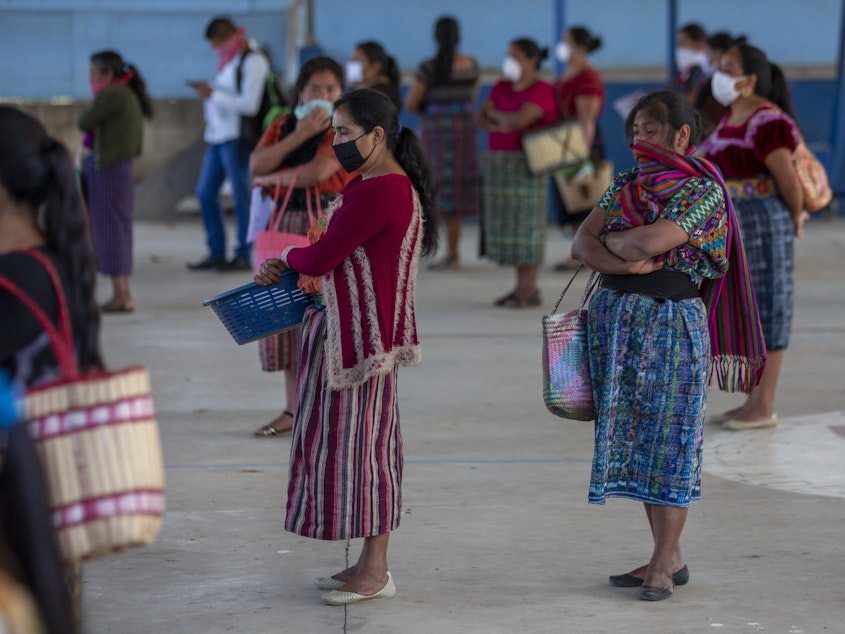COVID-19 Is Cutting Into Vital Money U.S. Migrant Workers Send Back Home

As U.S. joblessness climbs, immigrant workers are facing a tough decision: pay rent and buy food or send critical dollars to family back home.
Fifty-one-year-old Anabel is struggling to do both. The Beverly Hills clothing store she cleaned four nights a week closed in early March. Holding onto the small apartment she and her husband share in Los Angeles is a top priority.
"We have had to cut back on food just to pay the rent," says Anabel, who asked NPR to not use her full name because she is undocumented.
Anabel usually sends money every two weeks to El Salvador where she supports her two adult children and three grandchildren. Last week, she says, she was able to send them only $50.
Anabel's daughter Elba Mariela, 30, is grateful for the money her mother sends. "I just think about what she's going without and if she has food," worries Elba Mariela in San Salvador, where she lives with 20 extended family members. Only one cousin is still working.
Sponsored
El Salvador was one of the first countries in the region to close its borders and quarantine residents.
In 2019, immigrant workers in the U.S. sent an estimated $150 billion abroad — half of it to Latin America and the Caribbean, according to Manuel Orozco at the Inter-American Dialogue, a think tank in Washington, D.C.
In Haiti, remittances account for a third of the economy. In Honduras, it's nearly a quarter.
Even in Mexico, where remittances represent a smaller share of its gross domestic product, the losses will affect 1.2 million households, according to Orozco.
He estimates that remittances to Latin America will fall this year by at least 7%, similar to the decline seen during the 2009 global recession.
Sponsored
The drop in dollars sent home by workers in the U.S. comes as Latin America faces its worst recession in 50 years.
For now, Ari, 33, a nanny in D.C., is still able to send money to her aging parents in Oaxaca, Mexico. Her employers are paying her during the shutdown, but they don't know for how much longer.
She, too, asked NPR not to use her full name because she is working in the country illegally.
Hopefully, the shutdown will be lifted soon, she says, "so we can go back to work and start sending money back home again." [Copyright 2020 NPR]



